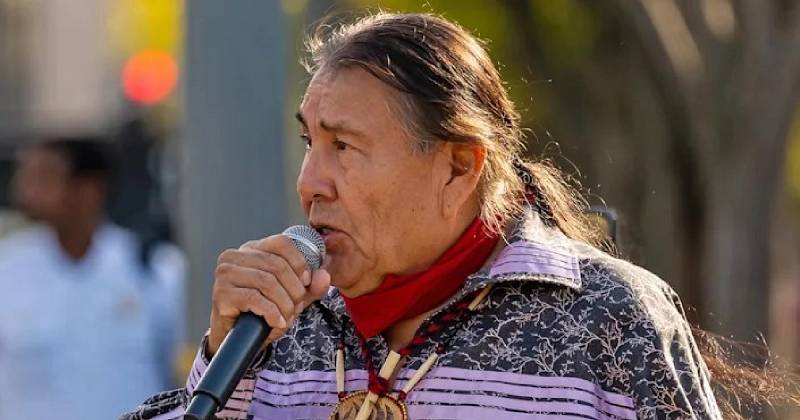
At COP26, Indigenous peoples’ struggles will be highlighted, as they are typically on the front lines of the climate disaster, as evidenced by deforestation in the Amazon rainforest and wildfires scorching tribal territory in the western United States. Some events and panels will feature indigenous leaders and traditional knowledge-holders whose methods can be valuable in mitigating and adapting to the effects of a changing climate. These events and panels are frequently attended by climate activists, academic researchers, and celebrities.
The importance of the Indigenous perspective cannot be overstated, with the United Nations pointing out that while 370 million people identify as Indigenous, accounting for approximately 5 percent of the global population, they inhabit and manage roughly 20 percent of the land.
The Declaration on the Rights of Indigenous Peoples, a nonbinding resolution approved by the United Nations in 2007, affirms indigenous peoples’ human rights and basic freedoms. However, advocates and researchers caution that groups around the world working to solve the climate catastrophe cannot do it in isolation, especially since many of them lack the power or financial clout to fight for themselves.
Native American activists and environmental groups said they’re counting on the US delegation to keep Indigenous people at the centre of discussions.
When John Kerry, the nation’s first climate envoy, spoke to the National Congress of American Indians, the nation’s oldest and largest tribal organisation, earlier this month, he presented a bleak picture for Indigenous peoples which revealed the ways climate change was threatening lands and livelihoods.
Kerry remarked that resilience of the native people were critical for the world, adding that the survival of the planet was inextricably linked to having Indigenous peoples’ leadership in voices of the United States.
While acknowledgment is vital, it must be accompanied by action, according to Kyle Whyte, an environmental and sustainability professor at the University of Michigan and a member of the White House Environmental Justice Advisory Council. He co-authored a study published in the journal Science on Thursday that concluded that centuries of forced movement of Native people by European and American immigrants had left them on marginal lands, more vulnerable to climate change dangers.
He claimed that the tribal nations and Indigenous organisations were unable to take harsh actions or to oppose developments on their lands because they faced opposition from government agencies and energy companies.
Native American activists and supporters marched in Washington this month to demand that Biden take a more aggressive stance against fossil fuel projects after the ‘Line 3’ replacement project was completed, snaking more than 300 miles through Minnesota and cutting through tribal reservations and treaty lands.
As the protests became more tense, resulting in dozens of arrests and an attempt to occupy the Bureau of Indian Affairs, demonstrators demanded that Indigenous leaders’ voices be amplified.
A Citizen Potawatomi Nation member, named Whyte, commended that it was a sign of Native people’s dissatisfaction and a warning to the current generation of affluent people who haven’t learnt their lessons.
He said that it was no longer merely a moral issue if the countries refused to join them, leaving out the people who manage a lot of the lands. ‘It will have a terrible effect on the rest of the world’s ability to achieve sustainability,’ he added.

Post Your Comments